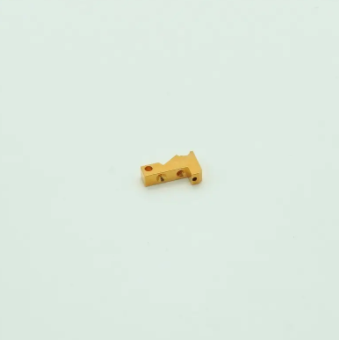When CNC machining processes are divided, it must be flexibly controlled based on the structure and manufacturability of the parts, the functions of the CNC machining center machine tool, the number of parts CNC machining content, the number of installations and the production organization of the unit. It is also recommended to adopt the principle of process concentration or the principle of process dispersion, which should be determined according to the actual situation, but must strive to be reasonable. The division of processes can generally be carried out according to the following methods:
1. Tool centralized sorting method
This method is to divide the process according to the tool used, and use the same tool to process all the parts that can be completed on the part. In order to reduce the tool change time, compress the idle time, and reduce unnecessary positioning errors, the parts can be processed according to the method of tool concentration, that is, in one clamping, use one tool to process all the parts that may be processed as much as possible, and then Change another knife to process other parts. This can reduce the number of tool changes, reduce idle time, and reduce unnecessary positioning errors.
2. Order by processing parts
The structure and shape of each part are different, and the technical requirements of each surface are also different. Therefore, the positioning methods are different during processing, so the process can be divided according to the different positioning methods.
For parts with a lot of processing content, the processing part can be divided into several parts according to its structural characteristics, such as inner shape, shape, curved surface or plane. Generally, planes and positioning surfaces are processed first, and then holes are processed; simple geometric shapes are processed first, and then complex geometric shapes; the parts with lower precision are processed first, and then the parts with higher precision requirements are processed.
3. Sequential method of roughing and finishing
When dividing the process according to factors such as the machining accuracy, rigidity and deformation of the part, the process can be divided according to the principle of separating rough and finishing, that is, roughing and then finishing. At this time, different machine tools or different tools can be used for processing; For parts that are prone to processing deformation, due to the deformation that may occur after rough machining, it needs to be corrected. Therefore, in general, all the rough and finishing processes must be separated.
Post time: Dec-25-2021

